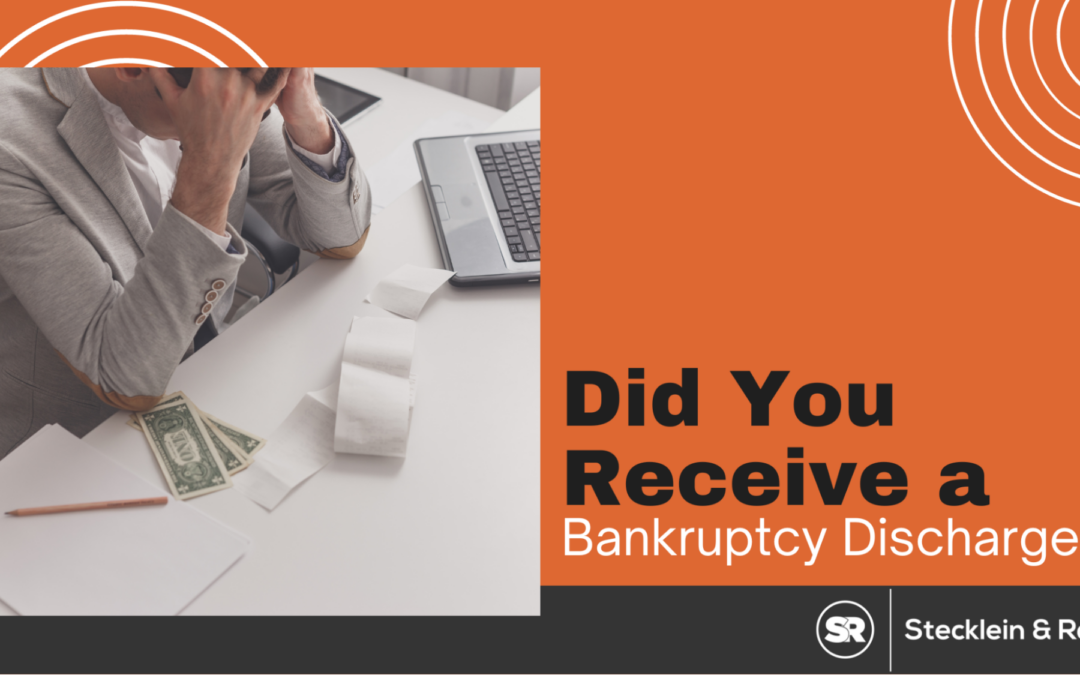To many, bankruptcy is a frightening word, and some might fear ever needing to step ten feet near it. However, it is more common than we think, and it can bring financial relief to those who have had looming debt over them for years with no end in sight. Before filing for bankruptcy and requesting a discharge, it is essential to understand better what it is, what it means to you, and the steps moving forward.
Your financial security and credit reports help make up who you are on paper; take the right steps to make yourself secure.
Understanding a Bankruptcy Discharge
Declaring bankruptcy relieves those with a significant debt burden, but a bankruptcy discharge is a tool used to accomplish it. It is essentially a court order that releases the debtor of any responsibility and liability to pay the allotted debt back to the collection agency.
The debt must meet specific criteria in order to be discharged, and the timing and requirements might change, whether it is a Chapter 13 or Chapter 7 bankruptcy. A Chapter 7 bankruptcy is ideal for those with very little disposable income who could benefit from lowering their monthly payments and are okay with taking a hit on their credit. A Chapter 13 bankruptcy is best for those who want to continue to own their assets named in the bankruptcy, as a Chapter 7 would have you lose them. Chapter 13 might also take longer.
When a bankruptcy discharge is placed, it effectively prohibits debt collectors from contacting and taking action against you based on that specific debt.
What it Does and Doesn’t Cover
A bankruptcy discharge covers debts such as:
- Medical Bills
- Attorney Fees
- Dishonored Checks
- Utility Bills
- Unsecured Debts
A bankruptcy discharge does not cover debts such as:
- Spousal Alimony/Child Support
- Most Federal Student Loans
- Tax-Related Debts
- Condo Fees
- Government Fines or Penalties
What Does a Bankruptcy Discharge Mean for Your Future?
While filing for bankruptcy will give you financial freedom and release you from certain debts you might not have been able to repay, there are some negative consequences to remember before asking for a bankruptcy discharge.
No matter what, bankruptcy will stay on your credit report for seven to ten years from the date you file. It will also affect your credit score and make it more challenging to buy a home, get a car, or do other milestones that rely on your credit report. The trade for financial freedom is rebuilding your credit for years to come.
What Does a Bankruptcy Do For My Credit Score?
If you received your bankruptcy discharge, it is vital that you check your credit reports to make sure that the credit bureaus updated the status of your debts. If the credit reports are still telling your lenders that you still owe the money, you did not receive a fresh start and you did not get the benefit of your bankruptcy. Credit bureaus have 60 to 90 days to “sweep” the credit reports to assure that any discharged debts are showing a zero balance and included in bankruptcy as their status. If you reaffirmed any debts in a Chapter 7, you should also make sure that that is still showing as an active account and not a discharged account. If your credit reports have not been corrected, you should dispute these reports to the credit Bureau.
Is There a Bankruptcy That Isn’t Yours on Your Report?
We’ve talked about the bankruptcy process and what it means for you, but what if you look at your credit report and find a declaration of bankruptcy that you didn’t do? If you found this, it could be someone stealing your identity. If this is the case, you can move forward with disputing it and getting it off your report. This, along with if it was a past bankruptcy that has not been deleted from your credit report after the allotted 7-10 years, is the only way a bankruptcy can be removed from your report. Like any identity theft event, you can dispute it with the credit bureaus, Experian, Equifax, and TransUnion. This is also a great opportunity to check other accounts to see if anything else was changed or stolen from you.
Filing for a bankruptcy discharge can have benefits and negatives, but it can all depend on your current needs. If you have further questions or if you are experiencing identity theft with no help, contact the team at Stecklein & Rapp.

